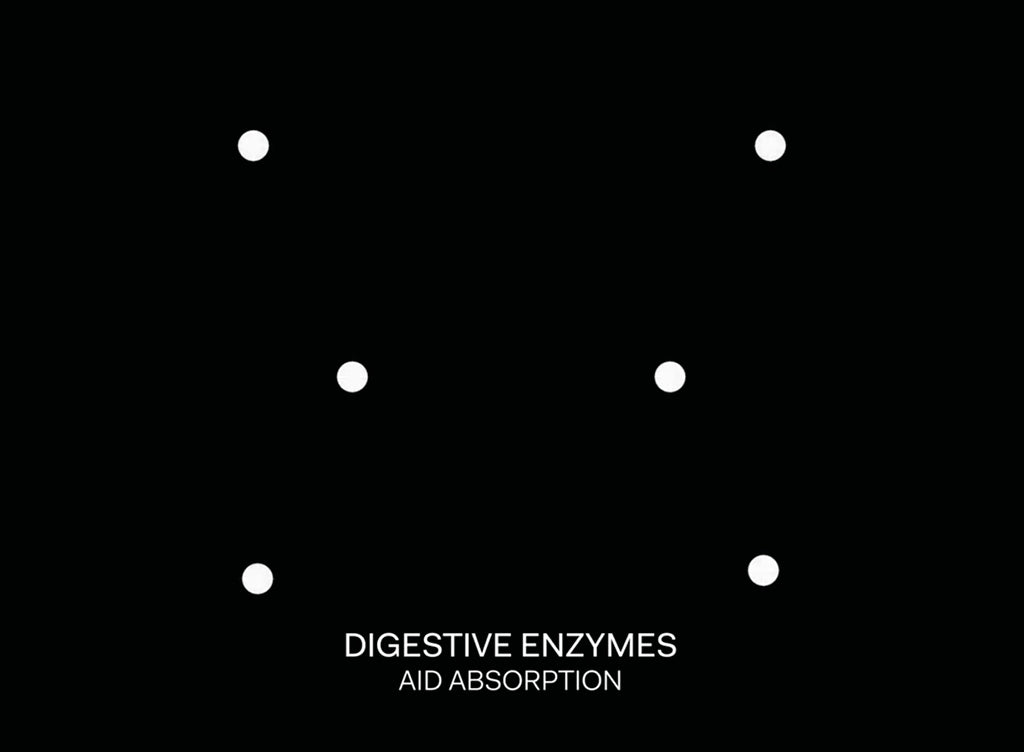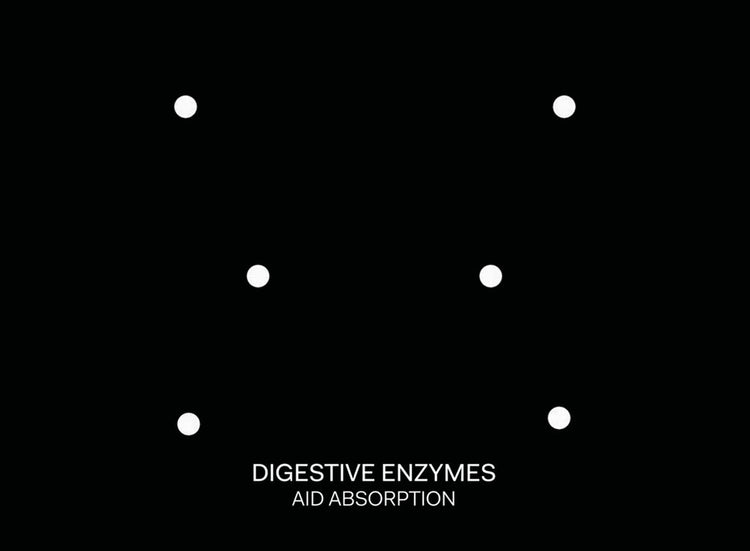What are digestive enzymes?


Digestive enzymes are proteins that regulate the chemical reactions the body uses to digest food; the enzymes break down the fats, carbohydrates and proteins in food into nutrient pieces until they are small enough to be absorbed into the bloodstream and carried throughout the body. We produce enzymes naturally in our bodies, including in our saliva, pancreas and stomach.
There’s some evidence to suggest that people who suffer from IBS (irritable bowel syndrome) may be lacking key digestive enzymes which can lead to the common symptoms of bloating and poor digestion, and that supplemental enzymes can relieve symptoms. There are many physiological and psychological reasons as to why someone might have a digestive enzyme deficiency, from repeated antibiotic exposure (which affects the balance of good bacteria in the gut) to emotional stress.
Although digestive enzyme insufficiency can present as common IBS symptoms like bloating, abdominal pain, constipation and diarrhoea, it’s not exclusive to those who have IBS and undigested food in stools can also be a sign that there is a lack of enzymes in the body. Aside from uncomfortable symptoms, a chronic insufficiency can lead to many wider health issues such as obesity, fatigue and impaired immune function.
There are many different digestive enzymes which work on different groups. The three key types are amylase, protease and lipase:
-
Amylase is produced in the salivary glands, pancreas and small intestine to break down carbohydrates and starches
-
Protease is produced in the stomach, pancreas and small intestine to work on proteins
- Lipase is also from the pancreas and small intestine and processes fats to make them available for storing energy and supporting cellular health
These enzymes can be found in an array of foods, with fermented foods and tropical fruits being notably effective in speeding up the digestion of certain nutrients. We use the antioxidant fruit maqui berry and papain derived from papaya in DEBLOAT FOOD + PREBIOTIC for exactly this reason. Eating fruits like pineapple, papaya, kiwi, mango and banana, especially raw after a meal is a great way to boost your digestive system. Avocado, kimchi, miso and ginger are also excellent sources of digestive enzymes, and can be combined with anti-inflammatory turmeric and cinnamon.
Our formula for DEBLOAT+ contains a proprietary blend of seventeen digestive enzymes, including the aforementioned three: Amylase, Protease, Acid Protease, Neutral Protease, Bromelain, Lipase, Cellulase, Invertase, Lactase, Maltase, Glucoamylase, Alpha Galactosidase, Pectinase, Xylanase, Beta-Glucanase and Phytase. Each of these has their own roles in comprehensively aiding your body in optimizing its nutrient intake. Alpha Galactosidase is perhaps one of the most interesting, since this enzyme has been found to reduce gas and bloating caused by eating beans and cruciferous vegetables (like broccoli and cabbage). It does this by breaking down some of the carbohydrates called oligosaccharides found in these foods.
It is always best to take digestive enzymes with food as that’s when they’re at their most effective, and digestive discomfort can occur when taken on an empty stomach. To boost the effects of DEBLOAT+, you could take DIGEST START before your meals which stimulates your body’s own digestive enzymes by triggering the bitter taste receptors on your tongue.